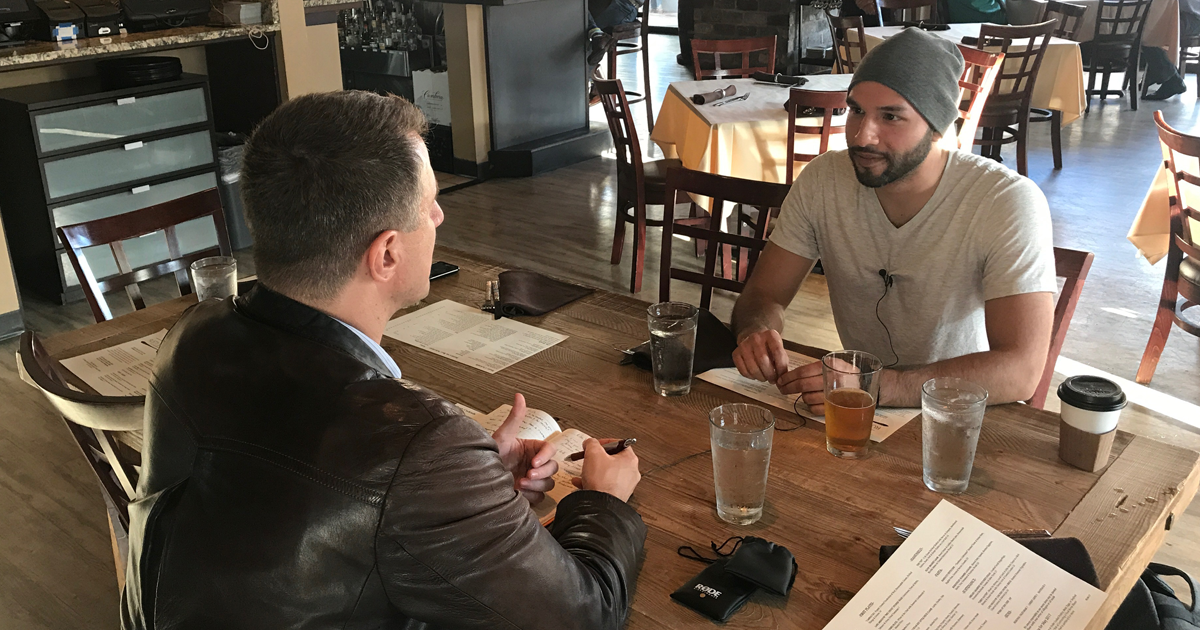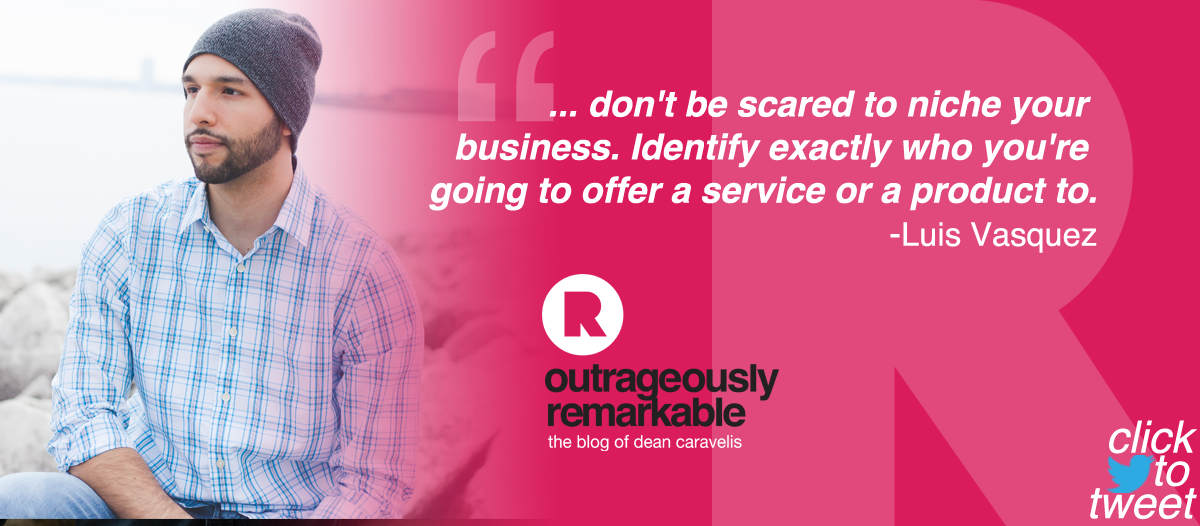Luis Vazquez
October 4, 2017
What happens when a professional breakdancer becomes a freelance developer and then switches to sales guru? You’re about to find out! Enter Luis Vazquez. Professional reinvention artist who is poised to teach the introverts of the world that they too can be mighty salespeople.
What would happen if every few years you took the board game of your career, flipped it upside down and replaced it with a brand new game? It is always fun to develop new skills but imagine the perceived risk tolerance that this would take. Think about the disruption this would cause.
This is what my friend Luis Vazquez does.
When you meet him it’s hard to not label him as a genuinely nice person. When you dig in a little deeper, you find out he’s truly introspective. When you get too deep, you begin to uncover the persona worthy of an unabashed reinvention artist.
By the way, when it comes to conversations, his instinct is to always go deep.
Luis admittedly was ‘not a good dude’ when he was a teenager. He headed down a dark path. It wasn’t until he found his faith that he turned the corner into becoming the first iteration of his true self. From there on out, he has been an insatiable self-taught learner who is obsessive about his craft. The first mountain he conquered was to become a professional breakdancer. Next, he learned how to code and subsequently dove into freelance development with Fortune 500 customers. His most recent pivot is to a project called ‘The Mighty Introvert’; where his mission is to be “the guy” who teachers introverts how to sell.
How’s that for some board game flipping?
Let’s sit down with Luis and learn more about his non-traditional career path …
[Setting: An altMBA friend, Rafael, was visiting from Brazil at the exact same time Luis was in town from Milwaukee. Being an impresario, I decided to invite a couple of local alums Shawn, Sura & Trevor so that we could all meet for dinner in downtown Orlando. I showed up to the Rusty Spoon during Friday happy hour, before our group dinner reservation, and met Luis for our interview …]
Dean: Luis, so explain this to me. Breakdancing to development to sales coach. Let’s start off with the breakdancing. Tell me, how did you get into that?
Luis: So, I was 18 years old. I got into breakdancing when someone invited me to a breakdancing session, where they used to practice. I went there and I saw how challenging it was and I just decided that this is what I’m going to do for a little bit.
Dean: So you just started from there? Did you take lessons or join a crew?
Luis: Yeah, so I just would go to practice and I did eventually join a crew and I got really good fast. Breakdancing is one of those forms of arts that you can do it by yourself with enough room, but it’s a lot of practice, and a lot of time, and a lot of discipline to get to know your body in a way that most people don’t know it.
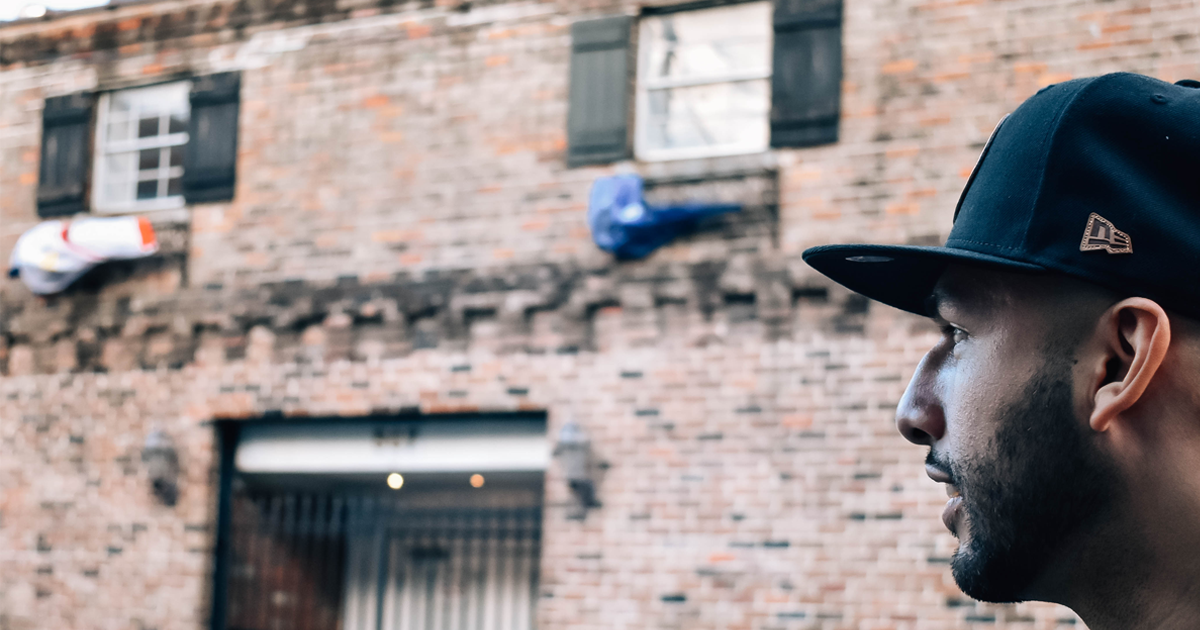
Dean: When you joined a crew, what was that like? Actually, what does that mean, being part of a crew?
Luis: It’s pretty much like a dance squad. We travel around, compete, and also do shows. We eventually started doing shows for the NBA. So every so often, I would perform there or at other events and it was a really cool time in my life. I traveled a lot, got to meet people from different backgrounds, and we all just related through this form of hip hop … this art … this expression of breakdancing.
… learning how to hack corporate America …
Dean: How did you go from dancing to getting into a computer-based profession? What was the inspiration for getting into coding?
Luis: I had never really typed anything and I didn’t even know how to Google anything when I was 19 or 20. So after traveling, I decided to get a job, like a normal job, and I got into this Fortune 500 company that a friend worked for. They had me doing some simple computer tasks like typing in keystrokes that were on a piece of paper and then I would come and check it off. I found out I was pretty good at doing that. It was so simple, but it was boring … I thought that there needed to be a way to automate it. I went to the library and picked up a coding book and then I just scripted all of my tasks and I learned that I really enjoyed programming. Again, it was challenging enough for me to say, “I’m going to try and tackle this all by myself,” so I decided to become a developer. I got lots of coding books and practiced.
Dean: So, breakdancing was self-taught. Coding was self-taught, too. How did you land your first customer, however you want to define that, in coding? Did you go work for a company first?
Luis: I kind of stumbled into the IT field. After my first corporate job … after they found out that I had scripted a bunch of tasks, they hired me because I was just a temporary employee at first, so they hired me full-time. I was there for like 3 years, and I had figured out how to become an application developer without a college degree, so it was pretty much finding the right companies to work for to get the experience. That’s really where I learned how to sell on a different level. In the span of two or three months, I did like 90 phone interviews, probably 20 in-person interviews, so I got really good at interviewing, and also at learning how to hack corporate America with resumes, and LinkedIn, and keywords, and all this other jazz.
… $150 and a Burger King sandwich …
Dean: How did you get your first customer when you became a freelancer?
Luis: My first customer was a friend of mine and I was so new at freelancing and business that I just took whatever I wanted to. I got paid $150 for something that should have been worth way more [laughs]. I always say $150 and a Burger King sandwich is what I got paid for my first project. It was really just working my already existing connections. That’s how I got my first client.
Dean: What would you say is your biggest breakthrough as far as acquiring a customer where you were kind of like, “I’ve arrived,” this is my first signature customer, this is something I can put on my resume, I feel other people would look at it and say, “Luis is legit.” When did that happen and what was that like?
Luis: My first three projects were very low. I went from $150 to $2000, then back down to $650 for my third project. So after that, it was like, “I’m probably not good at this.” So what I did was I took like a month to figure out what I was doing wrong and what I figured out was that my quality of work was great, but I wasn’t selling the right way. I was trying to sell like what I learned to emulate, what I’ve seen other people sell like, so I decided to try selling the way that I knew how to sell … more tailored to who I am. And my fourth project was for $40,000 and that was the time where I reached another level without knowing it. I thought every freelancer made that much per project and turns out that it was pretty high for a fourth project.
Dean: I want to ask you about your sales coaching business that you’re getting going now, but first I wanted to touch on the thing you told me previously on how you kind of tied in your previous life to your developer life, and how you used to breakdance for your development customers when you get to a certain point in the project. Can you tell me how that happened?
… this is the only consultant that we’ve hired that can breakdance for us …
Luis: The more clients I got, the more I felt confident in being myself. I feel like a lot of people … what we do is we feel like our professional life is very separated from our personal life. I think that the best sales people (or the best business people) can somehow incorporate their personal life or who they are into their brand, business, selling, skill, craft, whatever it is. One of the things that I knew was very different and unique about me from most freelancers or consultants was the fact that I breakdanced. For my projects, after I would complete a project for my client, I would normally try to buy something that they sold for their employees. Somehow, I got a shirt, a hat, a beanie, or something and I would just put a little video together where I said, you know, I enjoyed this project and I just wanted to give a little gift of me to you, and I would just breakdance. I would do one quick set and I would send it to them, and they would share it with their employees, and I made an impression because this is the only consultant that we’ve hired that can breakdance for us and spins on his head [laughs].
Dean: So you said you’d send a video?
Luis: Yeah, like a little short video. Like a minute, probably.
Dean: Okay, so you’re self-taught in all of those fields and after being a freelancer, you’re transitioning over to being focused on being a sales teacher? Is that the right terminology?
Luis: Yeah, I would say a form of it. I think it’s more that I’m writing content in order to teach introverts, introverted freelancers specifically, how to sell. I want to be “the guy” who teaches introverts how to sell.
Dean: What are products that The Mighty Introvert currently offers and what do you have in mind for the future?
Luis: Right now, all my articles (that includes, freelancing, selling, and introvert-oriented articles) are included in a guide that’s available for free and includes the four principles that I wish I would have known when I started freelancing …
Dean: What are those?
Luis: First is the power of focus. You know, to really strip down to the essentials. Number two is to really niche … don’t be scared to niche your business. Identify exactly who you’re going to offer a service or a product to … and then to define what it’s really going to do for that person. Third, to develop a persona, so really obsess over your ideal client and know them inside and out. The fourth one is to position; to apply all of those three steps and to make a series of decisions to position yourself so that the sales process is as smooth as possible.
Dean: I see all four of those as being very relevant to each other. I think that the one common thread I would see between all four is commitment. If you’re going to pick a persona, pick a niche, focus, and position all four of those things, you have to commit to who you are and who you’re selling to. Do you think it’s hard for introverts to commit?
So even in my introversion, I perceived it as a leadership type of trait that I have.
Luis: Absolutely. I think so. I’m writing an article about this right now. In positioning, there are two fundamental mindsets that we need to have to really execute business, or anything really, and that’s the understanding of who you are as a person, and then the understanding of who your ideal client is because somewhere in between is a transaction. If you know yourself very well and you know your ideal client very well, you’ll know how to foster and find a connection strong enough to earn the trust. For introverts specifically, they have this story that they tell themselves and that’s that they’re inadequate to sell because they have this story of what selling is. Introverts in different cultures look very different. It all has to do with the story. For me in my culture, my dad and my family saw introverted tendencies that I had and they didn’t tell me that I was weak, shy, or insecure. What they told me was he’s top dog, he’s Alpha, he’s a dominant person, he’s a leader. So even in my introversion, I perceived it as a leadership type of trait that I have. When it came to selling or executing, even though there were things that I was uncomfortable with, the story that I told myself was that I was a leader so I was confident enough to get outside of my comfort zone and to learn certain skill sets which most introverts feel uncomfortable with, which is what they have to commit to in the long run.
Dean: I’m looking at these different transitions in your career and it kind of ties into a question that I like to ask my guests, and that’s what does the status quo represent for you? I feel like you’re making these transitions at a time when everything is great and yet you’re disrupting it anyway. What does the status quo represent to you now, being the coach of introverted salesmen?
Luis: For me, the status quo would represent any force that opposes you or tries to convince you to be someone that you’re not. That’s how I would define it. Any kind of force. So you see that in corporate America, you see that in your family … what’s perceived as what is right sometimes doesn’t align with who you are. I like to think of it like I am my own person, you are your own person, we can both be awesome at a specific craft by applying skills, but the way that we apply them is very different. The principles are still there, it’s just the way that we apply them, we would apply them differently according to who we are. In order to be able to do that, you have to know who you are and you have to decide who you want to be. That’s the only way that you actually punch the status quo in its face, pretty much.
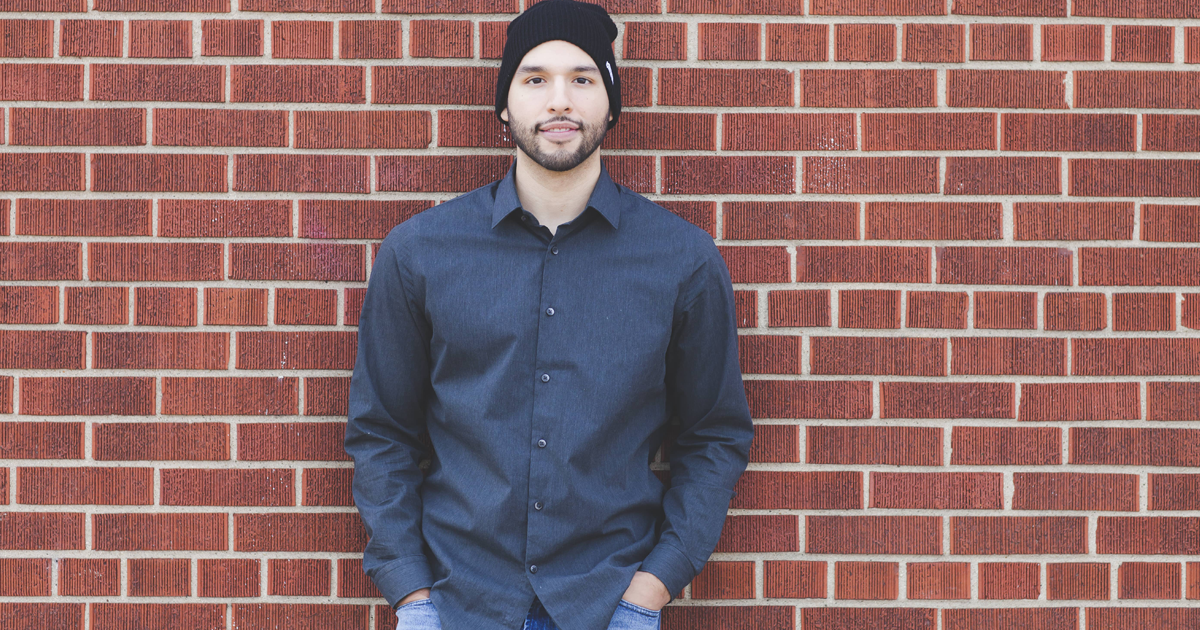
Dean: You’ve been able to been able to stand out in these fields, in these completely different fields … what is some advice for my readers on how they can stand out in their careers, regardless of what profession they’re in?
Luis: I think that being introspective, really identifying … I think the number one thing for me is that I think a lot and I pay attention to what I’m doing. I ask myself, “Why am I doing this?” That’s a tough question to ask yourself and it’s even tougher to answer. If you find yourself going through routines, to really ask yourself why you’re doing it, and to make a conscious decision about whether you think that this is the right thing that you ought to be doing. Not just out of repetition or motion … once you start making all of those decisions in your life, you start to really learn more about yourself, and you’re either going to be okay with who you are or you’re going to say, “I’m not okay with who I am and I need to be someone else.” That’s where the real work in anything is. To become the person that you need to so that if you want to excel in a career, it becomes very natural and intuitive to who you are.
Dean: Who is the most remarkable person that you’ve met in person and why would you consider them the most remarkable person?
Luis: The most remarkable person … Oh man, this is a tough one. We’re talking about thousands of people that I’ve probably met and you’re asking me to choose one. I mean, the first person that comes to mind right away is my dad, to be honest. It may be cliche, but yeah, I think my dad is probably the most remarkable and it’s probably because I know the most about him. I know where he comes from, I know what he’s done … good and bad, right? I think that the word that would describe my pops would be resilient. He is a resilient man.
Dean: Would you say that is one trait that you’ve taken on from him?
Luis: I believe so, yeah. I draw a lot of inspiration from him so anytime that I feel defeated or I’m down, I like to think that I have resilience running through my blood.
Dean: Okay, so starting The Mighty Introvert and making this transition, we talked about this a little bit before … taking a perfectly fine career as a freelance developer and saying, “I am not doing this anymore.” Can you walk us through the steps you take to have the courage to just put a dam up and go, I’m not doing this anymore, I’m focusing on this other thing.
Luis: First, I like to say that a lot of us start projects that we think are for a lifetime. I’ve learned through life that projects or skill sets or hobbies, it’s okay if the season has finished. To be able to say you know what, this is a chapter that I’m willing to close is liberating. You then get to test yourself in different ways that most people can’t. When it came to this transition, I saw that the impact that I was making on people and the feedback that I was getting was a different type of feeling that I’ve never had in any of my careers. I’ve been applauded, I’ve been patted on the back for a good job, but this one was a different type. This was: “You’ve helped me. You’ve changed my mind about certain things”. So I think I gravitated to that idea.
So I think I gravitated to that idea. I decided that after February when I was with you in Orlando … you gave a talk on being audacious. I went back and I took it to heart and I went through this process of saying, “What can I do to be audacious?” I’m very comfortable in my business and in what I do, so I decided that I would quit my freelance development business and I would focus all of my effort on teaching introverted freelancers how to sell and then to up the ante, I wanted to test two of my beliefs. I was able to do that by just giving all of my money away.
… I know how to flex an extroverted muscle a little bit more than the average introvert.
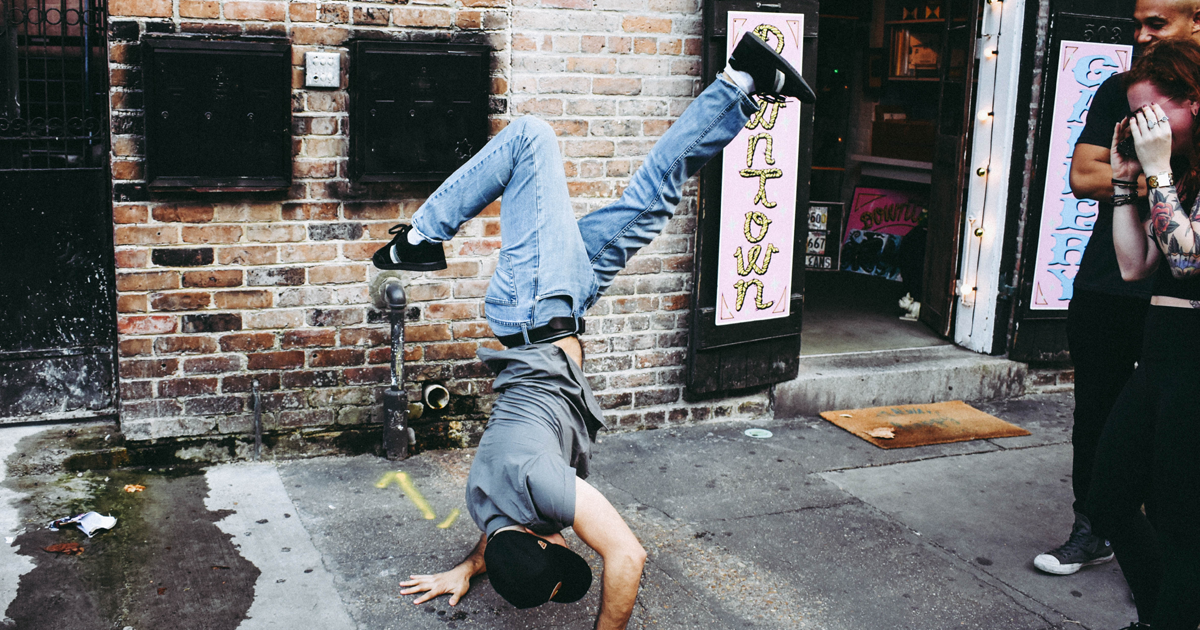
Dean: What is true about you that most people who know you wouldn’t believe?
Luis: [laughing] The fact that I’m an introvert!
Dean: Do you think people would say, “Luis has to be an extrovert” just based on all of these different things that you’ve done?
Luis: Yeah, I would think so. I think that most people assume I’m not an introvert because even they have the wrong story about what an introvert really is. They believe that introverts aren’t social. They believe that introverts are shy. What pretty much America and Hollywood says that an introvert is, but the reality is that it’s really about where we draw our energy from. Most people when they see me don’t know that before they saw me in public, I was at home for five days straight, by myself, doing nothing. You know, focusing on my own little projects and not having so much social interaction. I’m also someone who’s learned with time, and with training … through breakdancing, development, and selling, that I know how to flex an extroverted muscle a little bit more than the average introvert.
Dean: What do you think is the number one advantage for introverts in selling?
Luis: Their mindset. The power of observation, that critical thought. Introverts observe things to the max, we ponder. If you ever notice, when you ask an introvert a question, sometimes they’re slow to respond, but it’s because they’re thinking about things through a different light. A lot of us are creative, talented, but I would say that their most powerful characteristic is this power of thought. Now, the most challenging thing for them is that after they’ve given something so much thought, to execute it in a way that’s comfortable in their own skin, that’s where the real challenge is.
Dean: What’s a story that you think that introverts tell themselves that is their biggest obstacle to selling?
Luis: That they’re shy. That they don’t like people. That they have to be an extrovert to be successful. That’s what we see in the malls and cellphone booths, at restaurants … we see people selling to us and many of these people are extroverted because they’re quick transactions and they don’t get drained by people as easily as an introvert does, so these are perfect professions for an extrovert. Some of the best salespeople I know are introverted, but they make real big transactions that require a much longer sales lifecycle than the average cellphone booth or retail store.
Dean: If you could put your humility aside, what is your secret to being outrageously remarkable?
Luis: I would say that it’s knowing exactly who I am and being okay with that. And then when it’s time to change – I’m okay with that, too, and really making that decision to become the person that I need to be.
Dean: How are you going to know when it’s time to change after being an introverted sales coach?
Luis: You know, again, it might just be a feeling. I really do believe that I’ve done it once, I’ve done it twice, I’ve done it three times. When it’s time for this phase of my life to come to a wrap, it’s time to change.
Dean: What does success look like for The Mighty Introvert?
Luis: Success would be becoming the number one spot, the number one place for introverts to learn how to sell, but even bigger than that, the project is really about authenticity because if I can teach an introvert how to do a daunting task as selling, I’ve not only taught that introvert how to sell, but I’ve taught that introvert how to be comfortable in their own skin doing anything in life … whether it’s relationships, family, career, whatever. That’s the longer theme of this project. Teaching people that it’s okay to be themselves and giving them an actionable plan on how to be authentic in everything they do.
Thank you, Luis. I bet this interview has planted the seed of reinvention for a few people!
Learn more about Luis & connect with him on his website.
Q: FOMO? Answer: subscribe to be an insider & don’t miss out!
